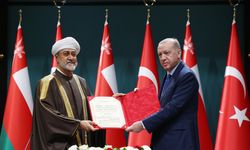Spain has formally requested to opt out of NATO’s proposed plan for member states to raise defense spending to 5% of GDP, a move that could complicate upcoming alliance talks in Washington.
In a letter to NATO Secretary General Mark Rutte, Spanish Prime Minister Pedro Sánchez called the proposed target “unreasonable” and “counterproductive,” warning it would undermine both Spain’s economic model and broader EU efforts to strengthen domestic defense capabilities.
“Committing to a 5% target would move Spain further away from optimal spending and hinder the EU’s security and defense ecosystem,” Sánchez wrote. “As a sovereign ally, we choose not to.”
Spain spent just 1.28% of GDP on defense in 2023, the lowest in NATO. Although Madrid has committed to reaching the current 2% goal, it is now resisting a significant increase seen as being pushed by the United States and supported by NATO’s leadership. Rutte has suggested raising defense spending to 3.5% of GDP, plus an additional 1.5% on broader security outlays.
The issue is set to dominate next week’s NATO summit, where any new commitments must be approved unanimously. Sánchez emphasized that Spain does not seek to obstruct an agreement but wants a “more flexible formula” — one that would either make the 5% goal optional or exempt Spain.
Other member states, including Italy, have also expressed reservations about the timeline and scope of the proposal. Rome, for instance, has reportedly asked to delay the deadline from 2032 to 2035 and to drop an annual 0.2% increase requirement.
Meanwhile, political tensions in Madrid — including a corruption scandal affecting the ruling Socialist party — have further complicated domestic support for increased military spending. Key government allies, including the far-left Sumar platform and Podemos, remain firmly opposed to any defense budget hikes.
“If the government needs parliamentary support to approve spending, it will have a very difficult time in the current situation,” said Jose Miguel Calvillo, an international relations professor at the Complutense University of Madrid.
A NATO official confirmed that internal discussions are still underway, while a senior European diplomat expressed hope for a compromise: “It doesn’t look good, indeed, but we are not over yet... Spain has demonstrated to be a steadfast ally so far.”







